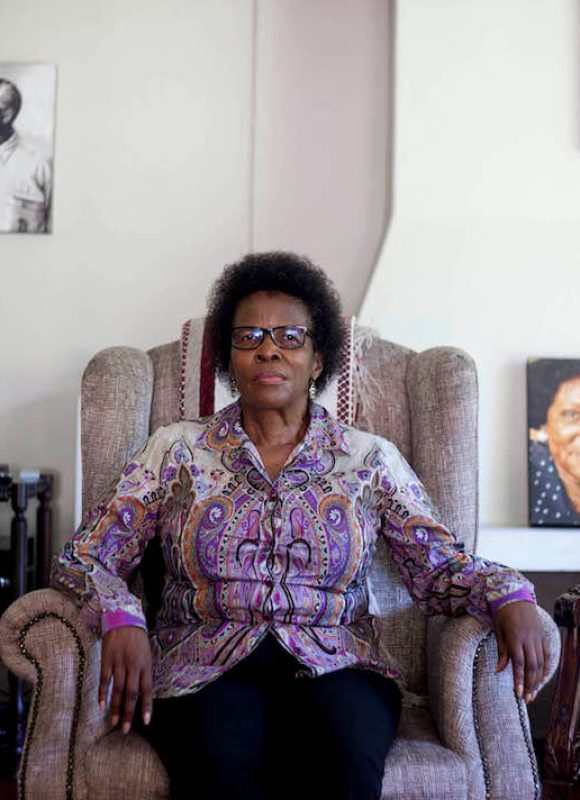PIONEER
Thenjiwe Mtintso

Black Consciousness Movement member | Politician | Soldier
Born: 7 November 1950
“Freedom has to include the presence and representation of women in leadership structures. Arguments for this include parity and participation, fairness and justice."
Who is
Thenjiwe Mtintso?
Anti-apartheid activist, commander of Umkhonto we Sizwe (MK), member of the African National Congress (ANC) and South African Ambassador.
Professions
and Roles
Activist, politician, diplomat, soldier, South African Ambassador.
Best Known For
Activism in the Black Consciousness Movement (BCM) and the ANC during apartheid, serving as commander of MK while in exile.
Life highlights
- While studying at the University of Fort Hare, Mtintso became a student activist in the South African Student Organisation (SASO) and the BCM. Her activism in student politics led to her expulsion from the university.
- Mtintso was detained several times by the security police in the 1970s, as well as banned because of her activities as a political organiser and a journalist of the Daily Dispatch newspaper.
- After Mtintso was arrested and brutally tortured by the security police, she was forced to go into exile in 1978. While in exile she joined the ANC and MK. She underwent military training and became the commander of MK.
- She remained in exile until 1992 when she returned to South Africa and was appointed onto the Transitional Executive Committee. She became an active participant of the Convention for a Democratic South Africa (CODESA) negotiations.
- In 1994 she became an ANC Member of Parliament (MP), and later served as the first Chairperson of the Commission of Gender Equality in 1997.
- In 1998, Mtintso was elected as Deputy Secretary-General of the ANC.
- In 2007, she was appointed as South Africa’s Ambassador to Cuba, and in 2010 as the Ambassador to Italy.
- Mtintso also served as Ambassador to Romania and to Malawi.
IN THEIR OWN WORDS
“Freedom has to include the presence and representation of women in leadership structures. Arguments for this include parity and participation, fairness and justice. Women’s life experiences and perspectives differ from those of men, thus they must be heard in both the economic and developmental sense. There must be transformation of power relations across society.”
– Thenjiwe Mtintso
IN THE WORDS OF OTHERS
“Her plate is always full and she wants to do everything to perfection. Not only does she have a full-time position on the gender commission, but she completes every task given to her by the SACP and the ANC and she’s completing her MA in management at the University of the Witwatersrand.”
– Colleagues at the Commission for Gender Equality
Due to financial constraints, Mtintso was forced to leave school and work full-time in various factories to fund her part-time studies at secondary school and at the University of Fort Hare.
